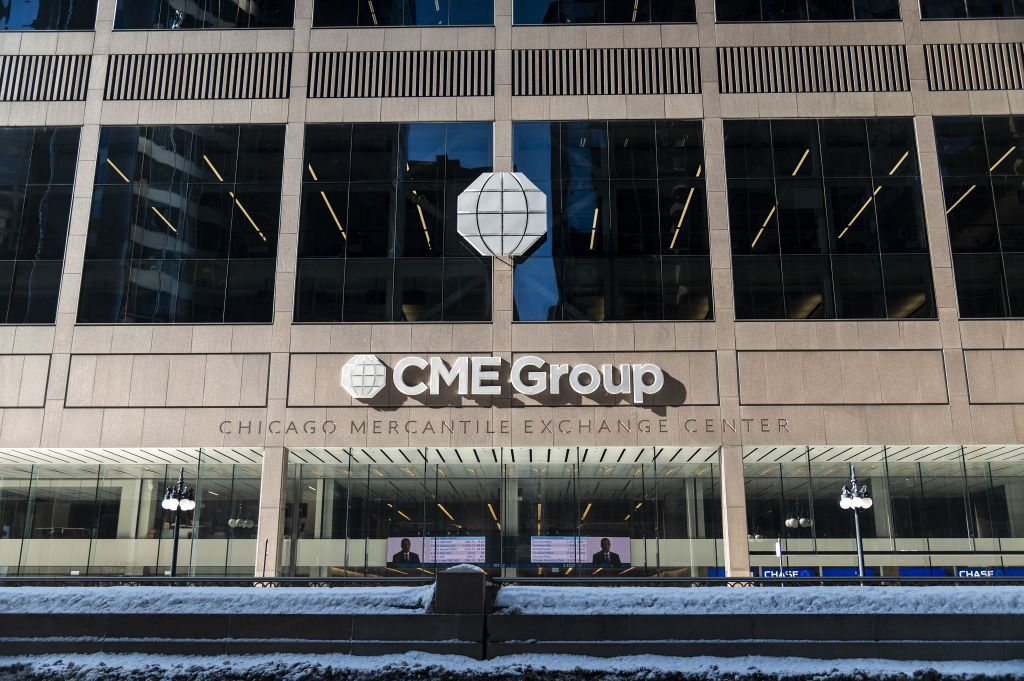Spreadbetter Plus500 will add to profits – here's how to play it
Plus500, the financial trading platform, surged in lockdown but will also ride the recovery, says Matthew Partridge.

Get the latest financial news, insights and expert analysis from our award-winning MoneyWeek team, to help you understand what really matters when it comes to your finances.
You are now subscribed
Your newsletter sign-up was successful
Want to add more newsletters?

Twice daily
MoneyWeek
Get the latest financial news, insights and expert analysis from our award-winning MoneyWeek team, to help you understand what really matters when it comes to your finances.

Four times a week
Look After My Bills
Sign up to our free money-saving newsletter, filled with the latest news and expert advice to help you find the best tips and deals for managing your bills. Start saving today!
The FTSE 100 may have broken through the 7,000 threshold, but some sectors have done much better than others over the past 15 months. Shares in companies hit by restrictions, such as pubs and travel operators, are still some way off their pre-crisis highs.
Technology and food delivery groups, on the other hand, have profited from lockdowns and their stocks are now substantially above their early 2020 levels. The question now is which recent outperformers will continue to race ahead once things return to normal.
One company that should keep doing well is Plus500 (LSE: PLUS). Plus500 specialises in contracts for difference (CFDs), financial derivatives similar to spread bets in that they allow investors to bet on fluctuations in the price of a share, currency or asset without holding the actual asset – and by putting down only a fraction of the initial price.
MoneyWeek
Subscribe to MoneyWeek today and get your first six magazine issues absolutely FREE

Sign up to Money Morning
Don't miss the latest investment and personal finances news, market analysis, plus money-saving tips with our free twice-daily newsletter
Don't miss the latest investment and personal finances news, market analysis, plus money-saving tips with our free twice-daily newsletter
Although headquartered in Israel, Plus500 has a substantial presence in the UK and is subject to rules laid down by the Financial Conduct Authority, the City regulator. It has other subsidiaries in Cyprus, Australia, Singapore, and Bulgaria.
Europe clamps down on CFDs
Last year, Plus500 experienced a surge in activity with investors bored with having to sit at home flocking to its platform, causing revenue to double and earnings per share to more than triple. As of the end of last year, client deposits had also increased from $1bn to $2.9bn.
However, while experts expect revenue to fall this year, this doesn’t change the fact that the company had been experiencing strong growth even before the crisis. Despite a Europe-wide tightening of regulation on CFDs, sales increased from $276m in 2015 to $355m in 2019, reflecting an annual growth rate of 6.5%. If just some of the new customers stick around, medium-term growth could be even higher.
What’s more, very high returns on capital, a key gauge of profitability, have allowed Plus500 to grow its dividend at the same time, with 150p per share returned to shareholders in 2020, nearly three times the amount paid out in 2015.
While the dividend will inevitably fall back in line with revenues and profits over the next two years, it still represents a very solid forward yield of 3.5%.
Even though the shares are 77% higher than their early 2020 level, Plus500 trades at a relatively low 11 times 2022 earnings, which makes it an attractive takeover target for a betting company or a financial institution looking to diversify its revenue.
With Plus500’s shares nearly 10% higher than they were a month ago, and above both the 50- and 200-day moving averages, the share price clearly has considerable momentum. I suggest that you go long on Plus500 at the current price of 1,514p at £2.50 per 1p, with a stop-loss of 1,136p. This gives you a total downside of £945.
Trading techniques: following the crowd
GameStop, which surged from $17 at the start of the year to a peak of $483 a few weeks later, was a global sensation. It also led to a debate about how retail investors, encouraged by websites such as the r/WallStreetBets subforum on Reddit and trading through platforms such as Robinhood, are changing the stockmarket.
While some saw it as a temporary phenomenon fuelled by the frustrations of lockdown, others interpreted the surge of ordinary investors as a fundamental change in a market hitherto dominated by professional traders and fund managers. However, for traders the more practical question is whether activity on WallStreetBets or Robinhood provides a good idea as to how shares will perform. Some argue that it makes sense to follow the crowd and buy the stocks tipped or mentioned on these websites, not least because they will benefit from investors piling into them.
Others say that many users of these sites are “dumb money”, since they are blindly following the advice of total strangers without doing any research themselves, and should therefore serve as a contrarian indicator. At present the evidence is mixed. A study by Wolfe Research found that a portfolio of Robinhood favourites would have outperformed America’s Russell 3000 index by 30% over 2020, although it would have been very volatile. Gregory Eaton of Oklahoma State University finds that mentions on WallStreetBets were correlated with increased trading activity on Robinhood.
But by the time investors on Robinhood started to pile in, most of the price increase had already taken place and the shares didn’t perform better over the next four weeks. In any case, Robinhood has stopped publicising the most popular shares on its platform.
How my tips have fared
My long tips have put in a mixed performance over the last two weeks, with two rising, two falling and one staying steady.
US homebuilder DR Horton increased from $92.64 to $95.72 while construction firm Morgan Sindall Group went up from 1,804p to 1,918p.
However, transport group National Express declined from 331p to 309p and cruise ship operator Norwegian Cruise Line fell from $29.71 to $27.97.
Media group ITV remained unchanged at 122p. Overall, my long tips are making total net profits of £6,380, slightly down from £6,686 a fortnight ago.
By contrast, my short tips did relatively well, with three falling and only one appreciating. Electric-lorry manufacturer Nikola fell from $12.83 to $10.29, cloud-computing firm Snowflake declined from $233 to $230 and electric-vehicle maker Plug Power slipped from $33.44 to $25.24.
Bitcoin also fell, from $58,000 to $55,250, but since I suggested that you hold off shorting it until it falls below $40,000, you would not have made any money from it.
Online grocer Ocado was the only tip to buck the trend by climbing to 2,199p from 2,059p. Overall, my short tips are making a profit of £2,380.
I have six long positions (National Express, Norwegian Cruise Line, ITV, DR Horton, Morgan Sindall and Plus500), four active shorts (Plug Power, Ocado, Nikola and Snowflake) and a bitcoin short yet to be triggered.
This is a reasonable balance, though I could do with another short or two to even things up. I recommend that you increase the stop-losses on Norwegian Cruise Line to $24 (from $23), and DR Horton to $63 (from $62). I also advocate reducing the level at which you cover Nikola to $23 (from $24).
Get the latest financial news, insights and expert analysis from our award-winning MoneyWeek team, to help you understand what really matters when it comes to your finances.

-
 Average UK house price reaches £300,000 for first time, Halifax says
Average UK house price reaches £300,000 for first time, Halifax saysWhile the average house price has topped £300k, regional disparities still remain, Halifax finds.
-
 Barings Emerging Europe trust bounces back from Russia woes
Barings Emerging Europe trust bounces back from Russia woesBarings Emerging Europe trust has added the Middle East and Africa to its mandate, delivering a strong recovery, says Max King
-
 Should you sell your Affirm stock?
Should you sell your Affirm stock?Affirm, a buy-now-pay-later lender, is vulnerable to a downturn. Investors are losing their enthusiasm, says Matthew Partridge
-
 Profit from pest control with Rentokil Initial
Profit from pest control with Rentokil InitialRentokil Initial is set for global expansion and offers strong sales growth
-
 In the money: how my trading tips fared in 2025
In the money: how my trading tips fared in 2025The success of the open positions offset losses on closed ones, says Matthew Partridge
-
 Coreweave is on borrowed time
Coreweave is on borrowed timeAI infrastructure firm Coreweave is heading for trouble and is absurdly pricey, says Matthew Partridge
-
 Circle sets a new gold standard for cryptocurrencies
Circle sets a new gold standard for cryptocurrenciesCryptocurrencies have existed in a kind of financial Wild West. No longer – they are entering the mainstream, and US-listed Circle is ideally placed to benefit
-
 Profit from other investors’ trades with CME Group
Profit from other investors’ trades with CME GroupCME Group is one of the world’s largest exchanges, which gives it a significant competitive advantage
-
 Investors need to get ready for an age of uncertainty and upheaval
Investors need to get ready for an age of uncertainty and upheavalTectonic geopolitical and economic shifts are underway. Investors need to consider a range of tools when positioning portfolios to accommodate these changes
-
 How much gold does China have – and how to cash in
How much gold does China have – and how to cash inChina's gold reserves are vastly understated, says Dominic Frisby. So hold gold, overbought or not